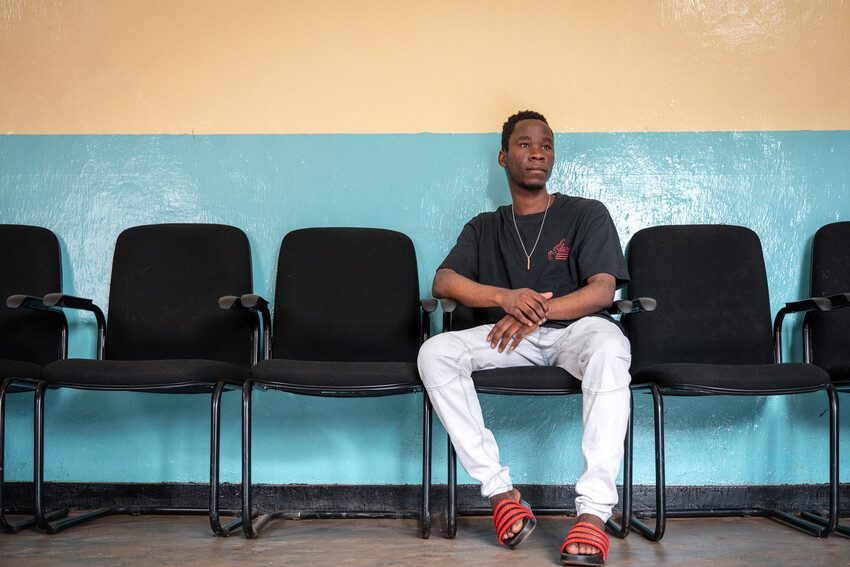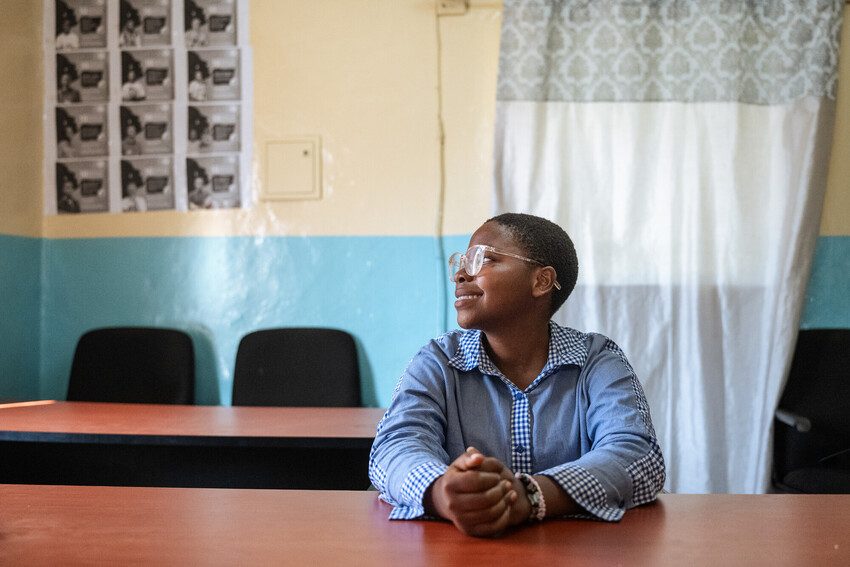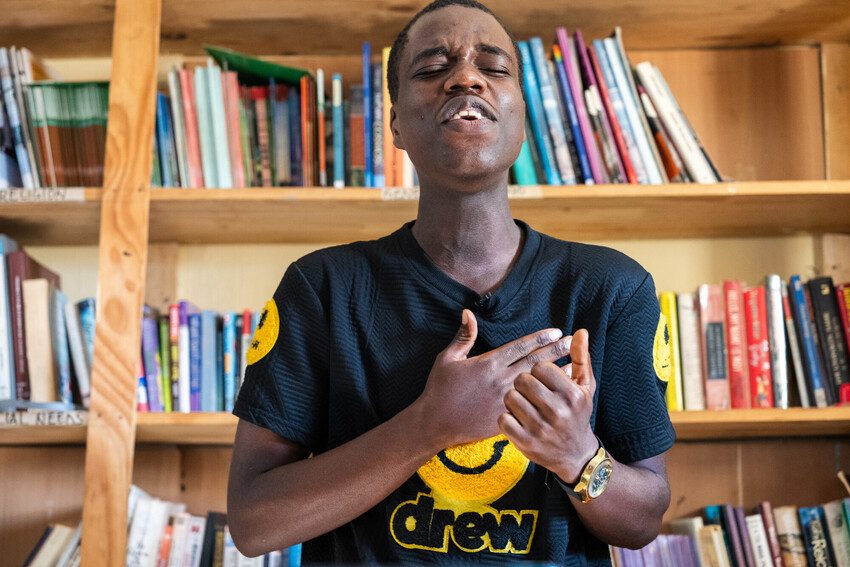Hope alone is not enough
What young refugees can teach us about taking action
4 June 2025As organisations, advocates, and allies, we must help turn refugees' hope into action, writes Enzo Mauro Tabet Cruz, Plan International's Humanitarian Policy and Advocacy Advisor.
“Hope” – it’s the word that echoed most often in my conversations with young refugee activists. In a world where refugees are too often excluded and criminalised, hope becomes a form of resistance.
Young refugees are eager to be seen for their talent and their contributions to society, not as a threat. Many will spend most of their childhood in displacement. With the majority of crises lasting five years or more, displacement becomes a long-term reality, not a temporary situation. During these years, young refugees frequently face interrupted education, food insecurity, and exposure to violence. For girls, the risks are even higher – early marriage, gender-based violence, and exclusion from schooling are all too common.

“Living in this camp puts you in a position where you’re constantly reminded of who you are, what you can and cannot do. Overcoming that has been a gradual process. It only became possible because my community started showing hope in me, supporting me, believing that I could help change the narrative.”
Damien, 22, Malawi
Speaking out for the marginalised
And yet, in the face of these challenges, many young refugees are leading change in their communities. They speak out for the most marginalised: girls forced into early marriage, children with disabilities, teenage mothers. They challenge harmful norms and fight for education and equality, driven by the hope that no one else will have to go through what they did.
“My biggest achievement has been seeing girls who were once too afraid to speak up now finding their voices and standing up against injustices. Today, they are also helping other girls.”
Nyabhan, 19, Ethiopia
These young activists have undergone powerful journeys of transformation, learning to value themselves in societies and systems that treat them as invisible. When they are given safe spaces, resources, and the opportunity to be heard, they become forces for progress, not just for their communities, but for the countries that host them.

“If a refugee is educated, they can stand and provide for themselves. They will keep on multiplying knowledge in the community, and ultimately, contribute to improving life in the camp. Refugee is just a name.”
Florence, 19, Malawi
Turning hope into action
But discovering their potential can be a frustrating process. Many governments still restrict refugees’ access to education, healthcare, jobs, or even freedom of movement. In some countries, refugees are confined to camps, denied identity documents, and blocked from higher education or work opportunities. These policies don’t just limit individual futures – they silence the enormous potential of an entire generation.
That’s why hope matters. But hope alone isn’t enough. As organisations, advocates, and allies, we must help turn that hope into action. We must work to change the systems that hold young refugees back and amplify their voices until policymakers have no choice but to listen.
Governments must recognise and invest in the potential of young refugees, tapping into their energy and innovation as powerful forces for progress in both their communities and the countries that host them. This can only be achieved by dismantling discriminatory policies and ensuring their right to move freely and access to labour market and education.

“The camps are perceived as not offering anything to society, but we have a lot of talent here. We have dancers, poets and artists. If we are just given the opportunity, we could show what we could do.”
Heritier, Dzaleka refugee camp
On this World Refugee Day, we stand in solidarity with displaced young people everywhere – especially girls – who are raising their voices, defending their rights, and shaping more just futures.
By joining our voices together in one powerful call, we can amplify the message that refugee rights are not forgotten and remind decision makers we care.
#UniteForPeace today
Today you can stand with refugees and displaced young people.
It could happen to any of us. So inspire some conversation on your social media by sharing a photo of the three things you would take with you if you were forced to flee your home in an emergency. Use the hashtag #UniteForPeace to make sure it’s added to our Wall of Peace.
Why would you choose those three items? How would you feel? What would you do? Take a look at what others have chosen on our Wall of Peace below.


